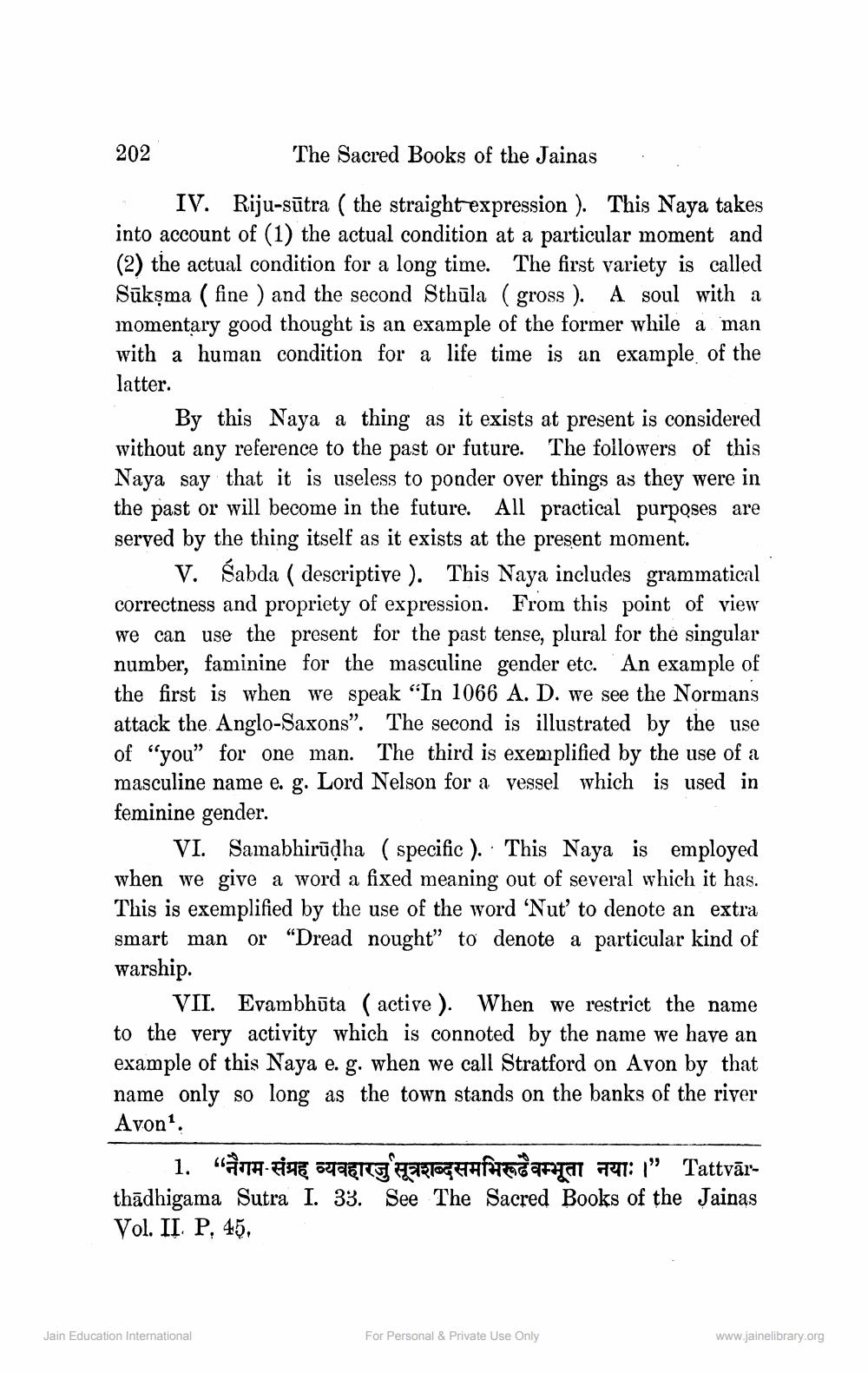________________
202
The Sacred Books of the Jainas IV. Riju-sūtra ( the straight expression ). This Naya takes into account of (1) the actual condition at a particular moment and (2) the actual condition for a long time. The first variety is called Sūkşma (fine ) and the second Sthūla ( gross ). A soul with a momentary good thought is an example of the former while a man with a human condition for a life time is an example of the latter.
By this Naya a thing as it exists at present is considered without any reference to the past or future. The followers of this Naya say that it is useless to ponder over things as they were in the past or will become in the future. All practical purposes are served by the thing itself as it exists at the present moment.
V. Sabda ( descriptive ). This Naya includes grammatical correctness and propriety of expression. From this point of view we can use the present for the past tense, plural for the singular number, faminine for the masculine gender etc. An example of the first is when we speak "In 1066 A. D. we see the Normans attack the. Anglo-Saxons”. The second is illustrated by the use of "you" for one man. The third is exemplified by the use of a masculine name e. g. Lord Nelson for a vessel which is used in feminine gender.
VI. Samabhirūdha ( specific). . This Naya is employed when we give a word a fixed meaning out of several which it has. This is exemplified by the use of the word 'Nut to denote an extra smart man or “Dread nought” to denote a particular kind of warship.
VII. Evambhūta ( active). When we restrict the name to the very activity which is connoted by the name we have an example of this Naya e. g. when we call Stratford on Avon by that name only so long as the town stands on the banks of the river Avon.
1. "MTA - FinE SUETES FERTOGHES FA 721T: 1" Tattvārthādhigama Sutra I. 33. See The Sacred Books of the Jainas Vol. II. P, 45,
Jain Education International
For Personal & Private Use Only
www.jainelibrary.org




